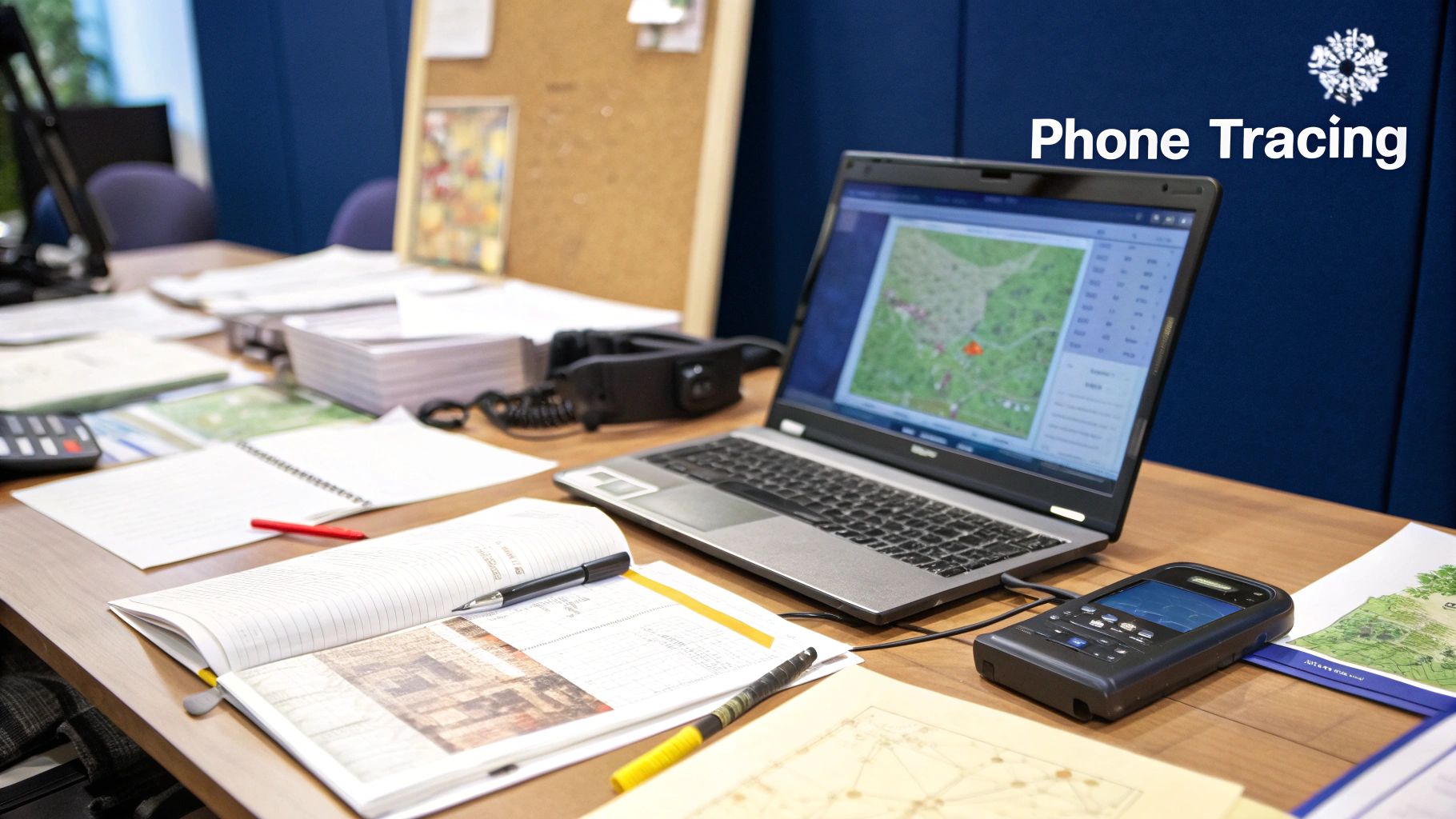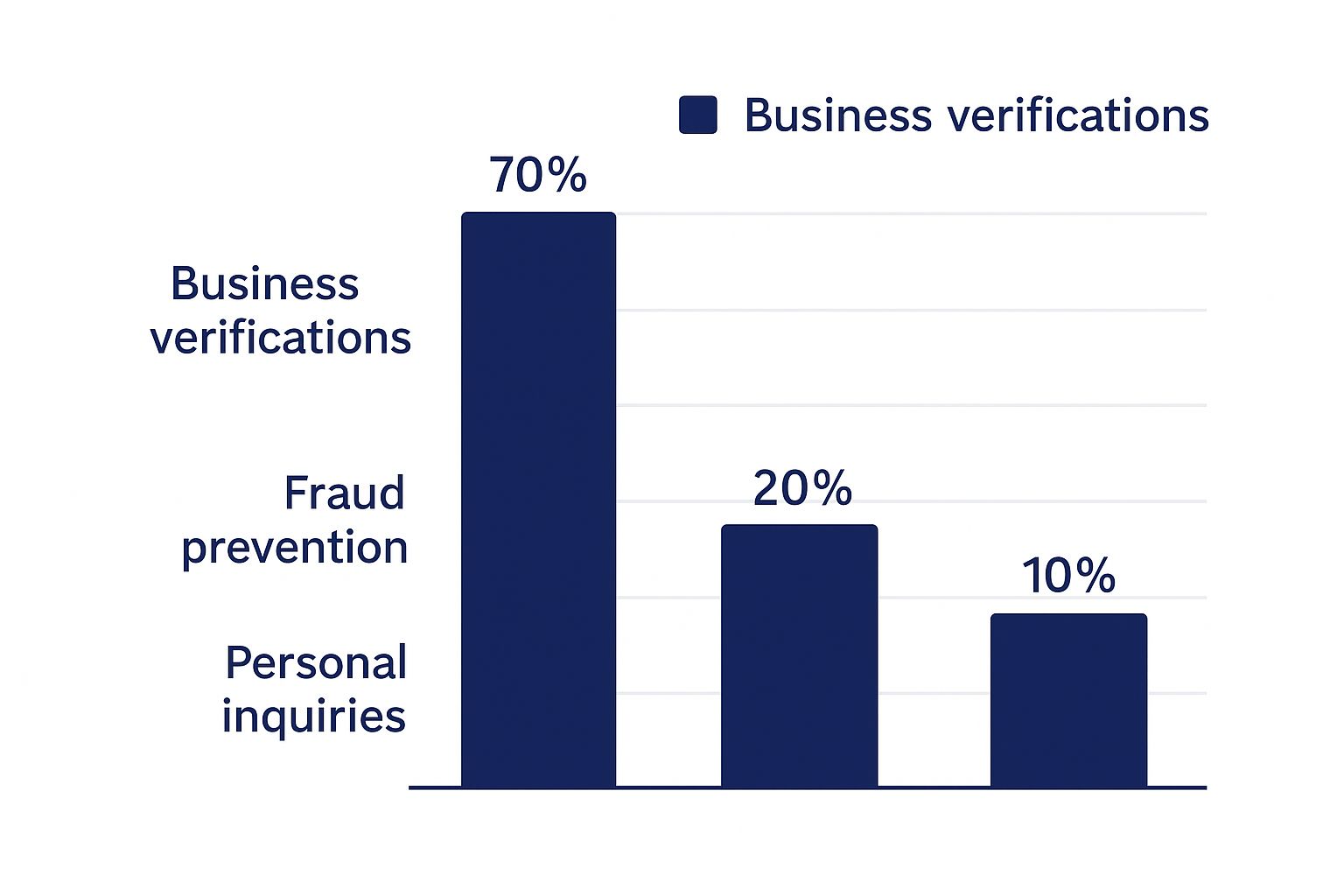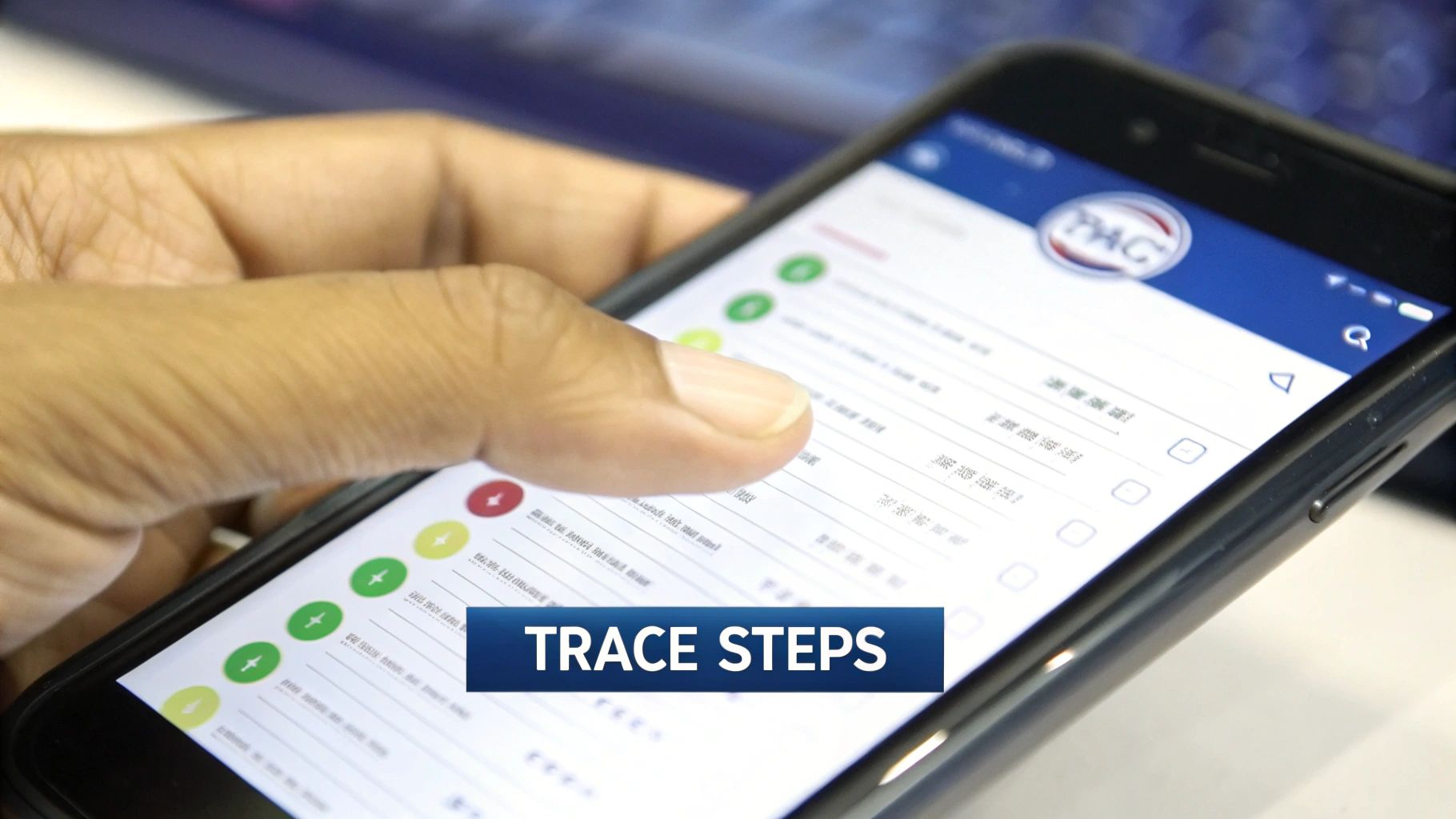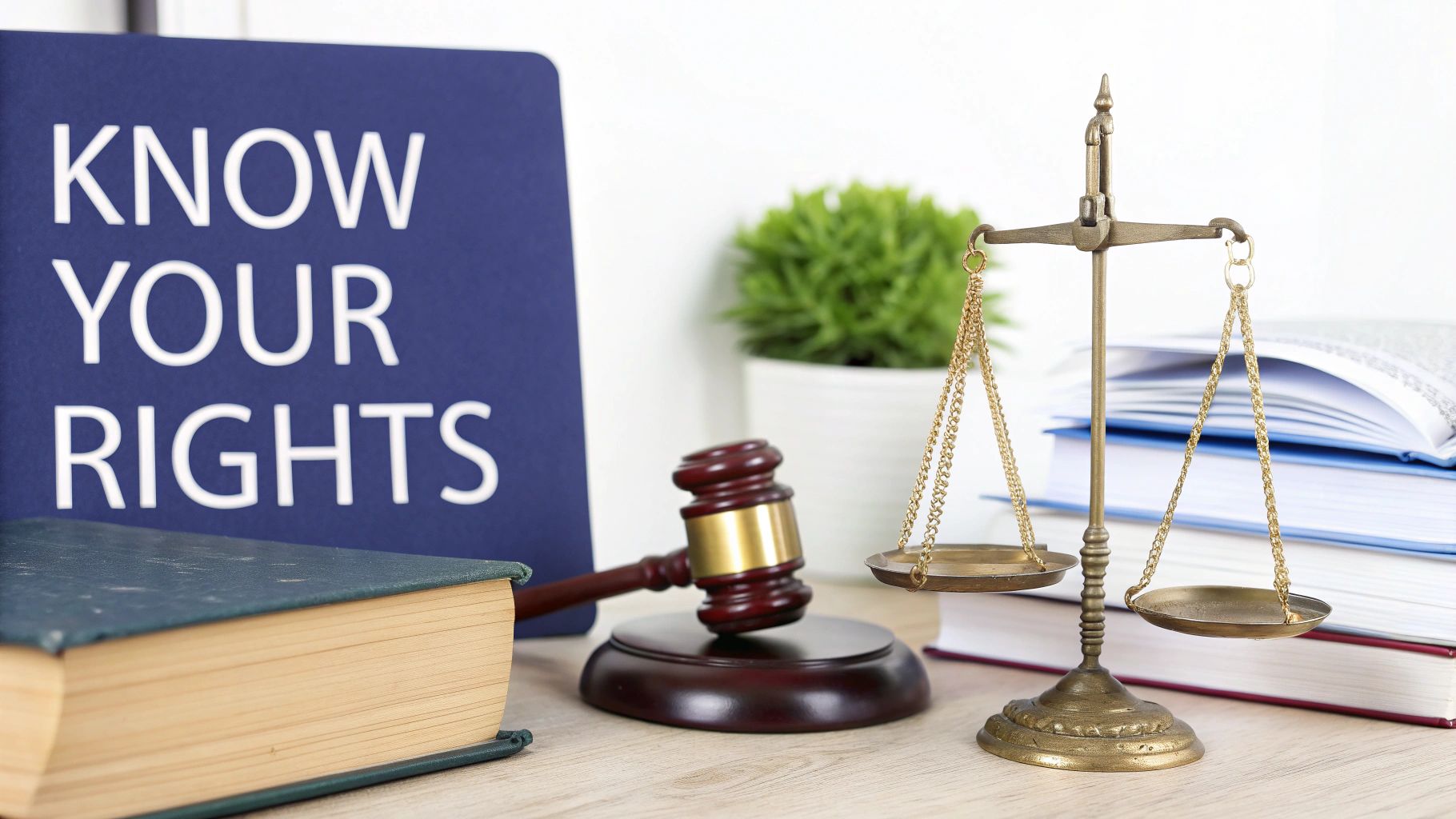UK Phone Number Tracing: Real Methods That Actually Work
- Sentry Private Investigators
- Jun 9, 2025
- 12 min read
Updated: Jul 28, 2025
Why UK Phone Tracing Isn't What You'd Expect

Let's be honest, Hollywood has lied to us. UK phone tracing isn’t like it is in the movies. You can't just punch in a number and instantly have a name, address, and a dramatic backstory. It's more nuanced, more like piecing together a puzzle. Think less "instant results" and more "detective work."
The truth is, tracing a number in the UK today involves understanding a whole network of mobile operators, VoIP providers, and, importantly, privacy laws. It's not simply about the tech; it’s about knowing the rules of the game. This is especially important given just how many mobile connections there are. The UK’s mobile scene is booming, which has a knock-on effect on tracing. As of early 2025, there were a staggering 88.4 million cellular mobile connections – that's 127% of the population! The rise of eSIMs adds yet another layer to the complexity. If you're interested in diving deeper into the UK’s mobile landscape, check out DataReportal.
Understanding the UK Numbering System
Something people often miss is the structure of the UK numbering system, regulated by Ofcom. These number allocations aren't random; they actually reveal information. Knowing the difference between a geographic number (linked to a landline area) and a non-geographic one can be a major clue. Even recognising mobile prefixes can help you pinpoint the network, a vital piece of the puzzle.
For example, if you see an 0800 number, you instantly know it’s a freephone service. A number starting with 09? Probably a premium-rate service. These seemingly small details can give you a sense of the call’s origin and help you decide if tracing it is even worth the effort.
The Impact of GDPR
Here’s a curveball: GDPR, the regulation designed to protect our data, also has an impact on phone tracing. It sets strict rules about how information is collected and used, even when dealing with nuisance calls. This means those slick social engineering tricks you see in films are often illegal in the real world.
Understanding the legal limits isn't just about staying out of trouble; it's about making sure any information you find is admissible if needed for legal action. Without the proper process and documentation, even hard-earned evidence might be thrown out. Fortunately, there are legal and reliable ways to trace numbers, including professional tracing phone numbers services. Knowing when to bring in the experts is a skill in itself.
Free Tools That Deliver (And The Ones That Don't)
Let's be honest, free UK phone number tracing tools often over-promise and under-deliver. Outdated info and hidden costs are common. But I've done the digging, talked to people in the know, and found some gems.
Truecaller, with its massive community database, can be surprisingly effective, especially in cities. It uses crowdsourced reports to identify spam and annoying calls. Who Called Me? is another good one, focusing on identifying businesses and flagging known scam numbers. Their app, Wotcha, gives you instant feedback from other users about a number.

The infographic above shows the breakdown of UK phone tracing requests. Most are business-related, followed by fraud prevention, then personal inquiries. This shows how much we need reliable phone tracing!
But even the best free tools have limits. Accuracy isn't perfect, and they struggle with rarely-reported numbers. Many rely on reverse lookup services, where you enter a number to see if it’s been flagged as spam or identified by others.
Think of tools like Who Called Me? and Truecaller; they're basically crowdsourcing information. Learn more about how these services work here. But what if free tools fail?
Understanding UK Phone Numbers
Knowing how to read a UK phone number is incredibly helpful. It’s not just about the area code. Prefixes and number ranges can reveal the mobile network, VoIP provider, or even the approximate registration date. This can really narrow your search.
Before we move on to paid options, let's compare some of the free tools I mentioned. This table summarises the key features and limitations of each:
UK Phone Number Lookup Tools Comparison
Service Name | Database Size | Accuracy Rate | Key Features | Cost |
|---|---|---|---|---|
Truecaller | Large, Community-Driven | Moderate | Spam Identification, Caller ID | Free (with premium options) |
Who Called Me? | Medium | Moderate | Business Identification, Scam Flagging | Free |
Wotcha | Medium | Moderate | Community Feedback, User Reports | Free |
As you can see, while free tools offer a starting point, their accuracy and features are often limited. They rely heavily on community reports, so less common numbers can be tricky.
When Free Tools Aren't Enough
For really tough cases, professional investigators are the way to go. They use advanced techniques and specialised databases, taking things to a whole new level. If you’re dealing with a serious situation, these services might be worth considering. You can learn more about these services for tracing phone numbers.
Reading UK Numbers Like A Detective

Every UK phone number has a story to tell. It's like a fingerprint, revealing more than just the caller's location. Hidden within those digits are clues about the number type, the network it's on, and sometimes even a hint about when it was registered. This information is pure gold when you're tracing a UK number.
Let me give you an example. You might see a number starting with 07624 and think it’s a regular mobile. But anyone who's done a bit of digging knows these are Isle of Man numbers. That little detail can be incredibly helpful. Or take 03 numbers: they often belong to big companies trying to look local. Knowing these nuances is the key.
Some prefixes are immediate red flags. 09 numbers, for example, often point to premium-rate services, which can mean scams or unwanted subscriptions. Recognising these prefixes can save you a lot of headaches.
Understanding UK Number Allocation
That’s why a deeper understanding of UK number allocations is so important. Luckily, Ofcom (the UK's telecoms regulator) maintains detailed records of allocated numbers, and these records are publicly available. They're a must-have resource for anyone serious about tracing UK numbers. Ofcom regularly updates its data files on geographic, non-geographic, and mobile services – information that's vital for communications providers.
Before we delve into more specific number types, let’s look at a quick breakdown of what some common prefixes can tell you. I’ve put together a handy table to make things easier:
UK Phone Number Prefix Guide Complete breakdown of UK phone number prefixes, their meanings, and what information they reveal about the caller
Prefix | Type | Geographic Area | Typical Use | Tracing Difficulty |
|---|---|---|---|---|
01/02 | Geographic | Specific UK cities and regions | Landlines | Generally Easy |
03 | Non-Geographic | UK Wide | Businesses, mimicking local numbers | Can be tricky |
07 | Mobile | UK Wide, including Isle of Man (07624) | Mobile phones | Moderate |
08 | Non-Geographic | UK Wide | Freephone, special services | Varies depending on the specific 08 number |
09 | Non-Geographic | UK Wide | Premium rate services | Often difficult, potential for scams |
This table summarises some common prefixes and their associated challenges when tracing. Remember, this is just a starting point – the more you learn about UK number allocations, the better equipped you'll be.
Decoding Non-Geographic and VoIP Numbers
Non-geographic numbers (those not tied to a specific location) can also give you useful information. As we’ve seen, 08 numbers usually indicate freephone services, while others might represent specific business types. VoIP (Voice over Internet Protocol) services, often used for business or international calls, also have their own unique prefixes. Being able to quickly spot a VoIP number is a key skill in UK number tracing.
And while we're talking about how numbers are used, it’s worth thinking about the technology behind them. For instance, some people use automation for sales calls. If you're interested in that, you might want to check out this resource on how to automate outbound calls.
Knowing these patterns lets experienced investigators quickly sort through numbers. Some are obvious dead ends, while others warrant a deeper dive. This ability to filter quickly saves time and resources. But sometimes, your own sleuthing won’t be enough. That’s where bringing in a professional investigator can make all the difference.
When Professional Help Makes Sense
Sometimes, you hit a wall. You've tried all the free online lookup tools, figured out what the number prefixes mean, and still… nothing. You're stuck. This is where calling in the pros can be a real game-changer.
I've actually chatted with a few other UK investigation services, and I've seen the difference they can make. When things get complicated – like harassment from multiple numbers, tricky business fraud situations, or if you're dealing with a legal case – these professionals have tools you and I just don't. They can get into specialised databases, they know the legal ins and outs, and, importantly, they understand how to document everything so it holds up in court. If you’re interested in learning more about this side of things, take a look at our guide on understanding the role of a private investigator in modern cases.
Understanding the Costs and Success Rates
Hiring a professional investigator in the UK for phone tracing usually costs somewhere between £100 and £500. It depends on the specifics of the case, of course. While that's definitely an investment, think about how much it could cost you not to have that information, especially if legal action is involved.
Professionals have a pretty good track record – they typically manage to trace UK numbers about 70-85% of the time. They've got the skills and experience to find information that regular searches just won't turn up. For really complicated cases, you'll want to find a service that specialises in tracing phone numbers. They can tailor their approach to get the results you need.
When DIY Hits a Wall
Here are a few examples of when bringing in a professional can be invaluable:
Harassment Cases: Getting harassing calls from unknown numbers is awful. A professional can often connect those numbers and figure out who's behind them. They can also collect evidence, which is crucial if you decide to take legal action.
Business Fraud: If you suspect fraud, professionals can trace numbers connected to the activity, sometimes even uncovering whole networks of numbers used by scammers.
Legal Proceedings: If you need to trace a number for court, a professional's methods of documentation and evidence gathering are much more likely to be accepted by the court.
Making Informed Decisions
Knowing when to stop trying to do it yourself and bring in a pro is a big decision. Think about how much time you've already spent, how much more time you can afford to lose, and how complex the situation really is. A professional investigator can give you a realistic assessment of your case, telling you how likely they are to succeed and what it will take. This lets you make a smart decision about how to move forward. Plus, they can make sure you stay within the legal boundaries, which is always important.
Staying On The Right Side Of The Law

Let's talk UK phone number tracing. It's fascinating stuff, but it's not a free-for-all. UK privacy laws are stringent, and there are some serious no-go zones. I’ve dug into this quite a bit, talking to legal experts and researching actual cases, and trust me, you don't want to mess this up.
GDPR and Data Protection: Real-World Implications
The General Data Protection Regulation (GDPR) and the Data Protection Act are all about protecting personal information. This has a big impact on UK phone number tracing, even if you’re just trying to figure out who keeps spamming you with those silent calls. These laws put limits on what data you can access and how you can use it. For example, that classic movie trope of pretending to be someone else to get information (social engineering) – yeah, that's often illegal in real life.
Also, some databases that seem public might have hidden usage restrictions tucked away in the fine print. Ignoring those can get you in trouble. I’ve heard real stories of people getting into legal hot water because they didn’t do their due diligence.
Documenting Your Search: A Crucial Step
Keeping detailed records of your UK phone number tracing activities is essential. This isn’t about being tidy; it's about ensuring any information you find is usable in court, if needed. Good documentation can be the deciding factor in a case.
Imagine putting in hours tracing a number, only to discover the information can't be used because your process wasn't properly documented. What a waste of time! Documenting your steps shows you’ve acted legally and ethically, which adds real weight to your findings. You might find our guide on the benefits of a TSCM bug sweep interesting for further insights into legal investigations. Also, if you're considering hiring professional help, remember to keep a good work-life balance, especially when things get stressful. Check out these tips on balancing work and family life.
Knowing Your Limits
Understanding the legal boundaries of UK phone number tracing isn't just about staying out of trouble; it’s about ensuring your investigation is effective and your findings are rock solid. If you're unsure about whether a specific method is legal, it's always best to play it safe. Talking to a lawyer can give you clarity and prevent future problems. Remember, sticking to the rules makes sure anything you uncover is actually usable if legal action becomes necessary. Professional services specialising in tracing phone numbers know the ins and outs of these legal intricacies and can guide you through the process safely and effectively.
Advanced Techniques That Get Results
So, you've hit the wall with those standard UK phone number tracing sites and drawn a blank. It happens. But don't give up just yet. Things are about to get a little more interesting. There's a whole other level of techniques out there – perfectly legal – that can help crack even the trickiest number tracing cases. These methods require a bit more patience and a systematic approach, but they can often deliver where basic tools fall short.
Harnessing the Power of OSINT
One seriously powerful approach is Open Source Intelligence (OSINT). Think of it like being a digital detective, piecing together clues from information that’s already publicly available. This isn't about hacking; it's about being smart and strategic with your searches.
Let’s say you've got a suspicious number you think might be linked to a scam. Try plugging that number into different social media platforms. You might be surprised to find a profile associated with it that’s racked up multiple scam reports. The Wikipedia entry on OSINT is a great resource for understanding the scope of this technique.
This screenshot from Wikipedia really highlights the sheer volume of information available publicly. If you know how to use OSINT, you can connect seemingly random bits of data to build a bigger picture.
Don't forget about public records. Business directories, property records, even those often-overlooked local council websites can sometimes link a phone number to a person or business. The key is to think outside the box and explore every possible connection.
Connecting the Dots: Real-World Examples
I've seen this stuff work in real life. A friend was getting harassed by calls from a VoIP number. Using OSINT, we managed to link that number to a whole network of other VoIP numbers used in similar harassment campaigns. Finding that pattern was vital for reporting the issue effectively.
Another time, someone I know was trying to track down a long-lost friend. They used strategic searching on social media and online forums, eventually stumbling upon a post that mentioned a unique nickname associated with the number. This led them right to their friend’s current profile.
If you’re a UK business owner dealing with unpaid debts, you might also find our guide on tracing debtors useful. It’s packed with practical tips.
Respecting Privacy Boundaries
It’s really important to remember that even with OSINT, you have to respect privacy laws. Don't do anything illegal or unethical. The goal is to find information legally and responsibly. These advanced techniques are powerful, but they do take time and effort.
If you’re dealing with a complex situation or you just don’t have the time to dedicate to it yourself, consider bringing in the professionals. Services specialising in tracing phone numbers have access to resources and databases that go way beyond what’s publicly available. They can also ensure everything stays within legal boundaries, giving you peace of mind.
Your Practical Action Plan
Tracing a UK phone number can seem like a real headache, but honestly, it’s often simpler than you think. It's a bit like planning a trip – you just need a good roadmap. So, here’s yours, based on actual experience, not just textbook stuff.
Quick Wins & Escalation Points
If you’re just trying to figure out a random unknown number, start with the easy stuff. Free online tools like Truecaller or Who Called Me are great for this. Give it 10-15 minutes – if they don’t turn up anything, move on. No point wasting time. If it’s nuisance calls you’re dealing with, keeping a detailed log of the times and dates is crucial. This record can be incredibly useful if you decide to get the authorities involved later on, or even a private investigator.
Now, if you’re dealing with something more serious like harassment or suspected fraud, you might need to call in the professionals. It's like a plumbing emergency – you wouldn't try to fix a burst pipe yourself, would you? You’d call a plumber. Same idea here. Professionals have the tools and expertise to get results, especially when you're trying to trace multiple numbers or tricky things like VoIP services.
Timeline & Budget
How long it takes to trace a UK number really depends. Sometimes it's instant, especially if it’s a common number. Other times, with more complex cases, it can take weeks. Budget-wise, the free tools are a good starting point. If you need to take it further, professional services generally cost somewhere between £100-£500. It might seem like a lot, but in legal cases, it's often worth every penny.
The key to successfully tracing a UK number is knowing when to escalate, managing your time and money effectively, and most importantly, staying within the law. If the free tools don’t cut it, and the situation justifies further action, think about bringing in the experts. A company like Sentry Private Investigators Ltd specialises in tracing phone numbers and other investigative work. They have the resources and know-how to handle those trickier situations, and they know the UK legal system inside and out, so you can be sure everything is done by the book. They can help you get the information you need while making sure you stay on the right side of the law.
